Let’s get one tiny thing out of the way. My mother and I just had a whole discussion about genealogy nomenclature, and after a bit of research, checking with a French and Italian friend, I decided that Mexicans seem to be atypical in calling your cousin’s children, your nieces and nephews. So that is why, as an only child, I am lucky enough to call a whole bunch of kids “nieces and nephews.”
So, having established that, this is my niece Ana Sofia. Her mom is Tessa, one of my 18 cousins on my maternal side (and yes that’s a lot of kids, but my mother is the eldest of 9 if that helps make some sense of it all).
This July 15th marks the 4th CASK Gene Awareness Day, a chance to raise awareness, support, improve understanding and of course, support ongoing research for this rare genetic mutation— one that my niece Ana Sofia has.
What follows are Tessa’s answers to some questions I posed, along with portraits I’ve taken over the years of Ana Sofia, her parents Tessa and Sal, and little sister Cecilia. Tessa, a pediatrician here in Columbia S.C., starts by explaining what the CASK gene is for those of us who don’t recall anything past 7th grade biology class. [Oh — is that just me?]
From there, she explores the journey of her daughter being diagnosed, navigating the healthcare system, why expert opinions matter, the heartbreak of our education system and how governmental policies affect families.
The CASK gene is a gene found on the X-chromosome. It provides instructions for making a protein called the calcium/calmodulin dependent serine protein kinase (aka CASK); this protein has many, many jobs in the body, but it is especially important for brain development. Some common characteristics and complications in people with CASK gene mutations include: microcephaly, pontine & cerebellar hypoplasia [“part of the brain that coordinates movement”], vision & hearing impairments, intellectual disability, seizures, cerebral palsy, and feeding problems.
Although we often think of genetic disorders as heritable (or passed down from generation to generation) the majority of CASK gene mutations are de novo or spontaneous mutations, meaning that the mutation was not passed down from a parent. Although official numbers are hard to come by in the literature, CASK gene mutations are considered ultra-rare; the CASK Gene Foundation currently has 346 self-reported cases in their registry. Females are more commonly affected by CASK gene mutations as they typically have a second - unaffected - copy of the CASK gene on their second X-chromosome which is protective against some of the detrimental effects of the CASK gene mutation.
Ana Sofia was officially diagnosed on August 1st, 2017, just 24 days before her 1st birthday. Although the microcephaly had been apparent even on prenatal ultrasounds, it's very hard to make a diagnosis on the basis of only one characteristic like microcephaly, especially when the diagnosis is something as ultra-rare as a CASK gene mutation.
I had some suspicion from birth that there might be an underlying cause for Ana Sofia's microcephaly but since her development remained fairly on track for the first few months, there wasn't much concern at that time. At 4 months of age I noticed that Ana Sofia wasn't reaching for things; this wouldn't be much of a red flag in isolation, but given the overall picture, I was fairly certain at that time that we were probably looking at some sort of underlying condition although I had no idea what it might be.
By 6 months when Ana Sofia's development continued to lag, my suspicions were echoed by her pediatrician and specialists and we began searching for a cause in earnest. At around 10 months of age Ana Sofia had an MRI of her brain which showed characteristic changes and prompted her geneticists at the Greenwood Genetic Center to recommend a focused gene panel. This panel was ultimately what confirmed a diagnosis of a CASK gene mutation just before her 1st birthday.
One of the many frustrating things about having a medically complex child is navigating the healthcare system. I obviously have plenty of experience on the physician side of the equation, which certainly helps, but being on the patient and parent side is very different. I have had many instances where, even despite my own medical background, I have been dismissed or ignored. I have "fired" multiple providers and have switched practices on several occasions in order to find care that I felt was better for Ana Sofia.
I have even gone as far as seeking care 1000 miles from home at Boston Children's Hospital; each trip requires extensive planning, expense, and the hardship of traveling with a disabled and medically complex child, but it's worth it to get expert care. And yet, even with my medical background, there have still been several instances where Ana Sofia has been misdiagnosed and/or a diagnosis has been delayed, usually because my concerns were dismissed.
My biggest lesson throughout my 8 years of parenting is that I am my child's best advocate. If something does not feel right, keep pushing. I still occasionally struggle with feeling like I'm being "too much" but I have learned to be a better advocate over the last 8 years. I often get asked whether I do a lot of Ana Sofia's "doctoring" myself (as in: do I go into her appointments with my own ideas/plans/diagnoses/etc). Truthfully, the answer is largely no. Not only am I not an expert in many of Ana Sofia's conditions, but I am also not her doctor, I'm her mom! What I have found works best for us is that I work very hard to find the right people to take care of Ana Sofia so that I can let them do their job and I can trust their recommendations.
My primary "requirement" for Ana Sofia's providers is that they listen and work with me to take care of Ana Sofia because, while I am not an expert in the same field of medicine as them, I am an expert in my daughter and together we can be much more effective in taking care of her.
For the first 5 years of Ana Sofia's life we had lots of medical appointments, hospital visits, therapy, etc. It was certainly not easy, but we felt fairly well-supported and I think we were somewhat insulated in our early intervention/preschool bubble. When the time came to enroll Ana Sofia in school I was not at all prepared for the challenges that would bring.
I will say that my experiences with the school system were some of the first times that it was blatantly obvious that there are a great many people who just do not care about disabled people. It is a gut-wrenching experience to be advocating for people to simply care about your child. I don't know how to make people care and to see her intrinsic value. She has value simply because she is a human being. She doesn't need to be an inspiration, she doesn't need to "overcome" her disability, she just needs to exist. Unfortunately because our society doesn't always understand that, we need structures in place to ensure equity and I fear that we have taken many steps back in that regard.
Family Connections has been a valuable organization for families like Ana Sofia’s.
Here, Tessa is featured in a news story talking about the Individualized Education Program process and the advocacy Family Connections provided.
One of the most troubling decisions of the recent administration has been their big ugly bill and its incredibly detrimental cuts to Medicaid and social services like SNAP. For a medically complex child like Ana Sofia, Medicaid is a literal lifeline. We have private insurance and it pays tens to hundreds of thousands of dollars per year for Ana Sofia's care. And yet Medicaid STILL picks up tens or hundreds of thousands of dollars more in costs that are not covered by private insurance.
I want to be clear that losing Medicaid cannot simply be made up for by private insurance. And it's not simply a matter of us, as parents, having to pay a little more in healthcare costs. It's simply not possible for us to pay the tens or hundreds of thousands of dollars every year for the rest of her life for Ana Sofia's ongoing care. Without Medicaid, Ana Sofia will miss out on critical medical care. That is the reality. Her health and possibly her life is at risk if she loses Medicaid.
I know that the administration is claiming that Medicaid for disabled children will not be affected but that is simply not true. It's a complex issue, but the bottom line is that waiver programs like the ones that provide Medicaid for children like Ana Sofia are voluntary programs. Although disabled children account for only a small proportion of Medicaid subscribers (around 6%), they account for a large proportion of Medicaid spending (around 40%) because their care is expensive.
When we cut $1 trillion in Medicaid money, states are going to have no choice but to eliminate or significantly cut programs, and where better to start than with voluntary programs. Aside from the issue of Medicaid for disabled kids, cutting Medicaid will have widespread effects on our healthcare system as a whole.
Close to half of the children in the U.S. are insured by Medicaid. That means that around half of healthcare reimbursement for children's medical care is funded by Medicaid. Around half of the reimbursement going to your local pediatrician, speech therapist, or children's hospital comes from Medicaid. If that funding is drastically decreased there are a great many pediatric providers who will not be able to sustain themselves.
This is a problem that will affect ALL children, not just those who are covered by Medicaid.
Becoming a parent has been the biggest joy of my life. My children are funny, clever, loving, and caring. Parenting any child is difficult. Parenting a disabled child is difficult in different ways, largely in ways that have nothing to do with my child's disabilities and everything to do with inaccessibility and ablesim. And while Ana Sofia has some additional challenges compared to other kids, she is also very much just that: a kid. She plays, she learns, and she loves. When she grows up she will no doubt have many of the same needs and desires as any other adult: a desire for connection and love, autonomy to make her own decisions, a desire for meaningful occupations, and joy.
Ana Sofia will likely need assistance with daily tasks for the rest of her life but one of the biggest lessons I've learned from the disability community is that we ALL need assistance in a multitude of ways throughout our lives.
The assistance I need is different than that which Ana Sofia needs, but it's no less or more important. Ana Sofia is not a burden because she needs assistance dressing or feeding any more than I'm a burden because I need assistance maintaining my car or doing my taxes. We treat the needs of disabled people as somehow unique and extraordinary but they're the exact same needs that we all have, just in slightly different forms. Hyper independence hurts us all because it ignores the humanity that we all have at our core.
We need each other. Be kind.
For more information or to donate to research being done on this rare disease, please visit The CASK Gene Foundation, Project CASK, and in the UK CASK Research.
As always thank you for reading.
Katia
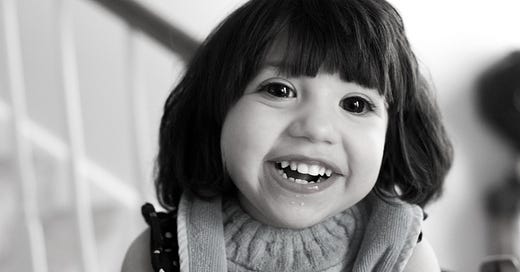






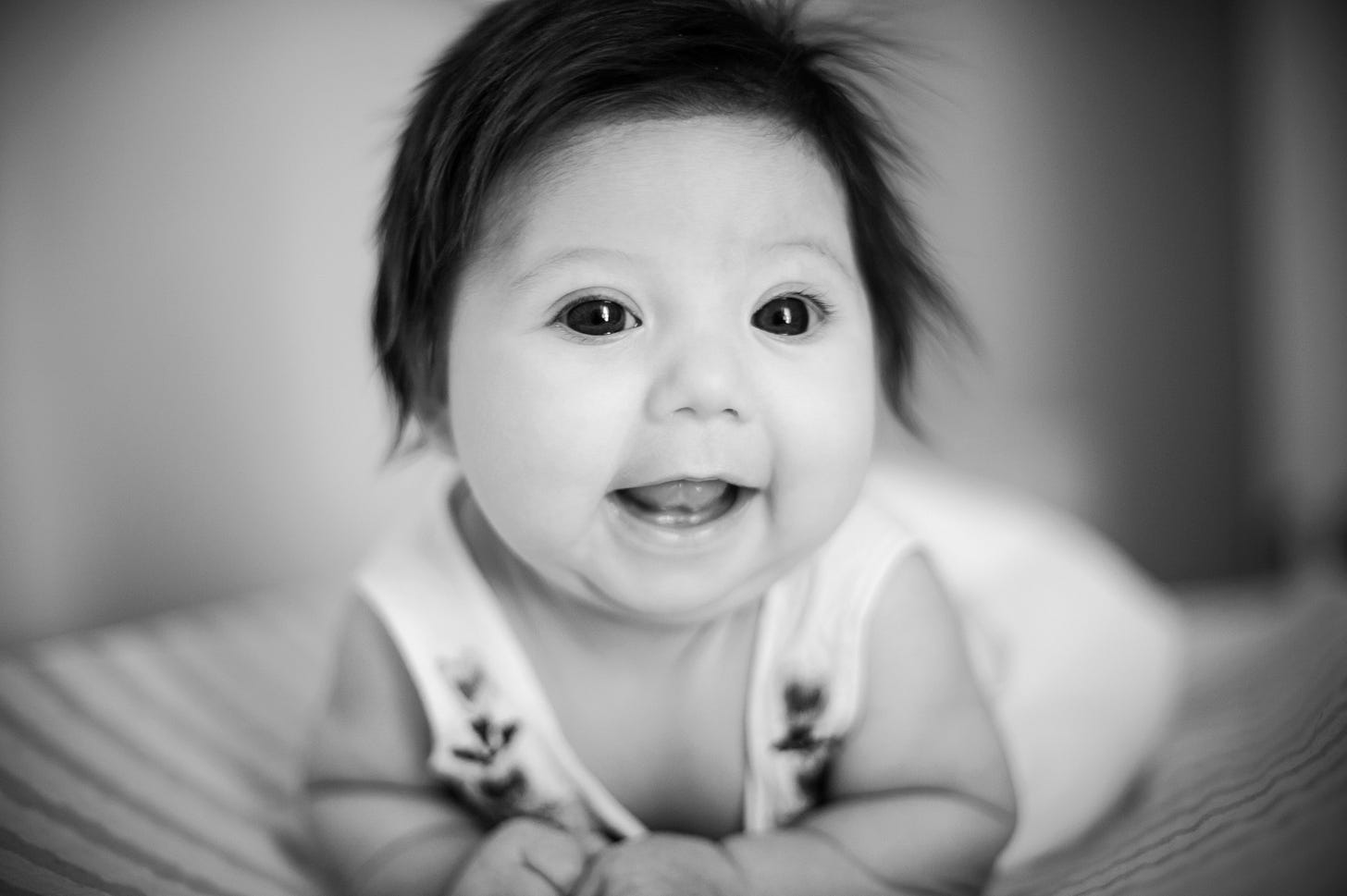

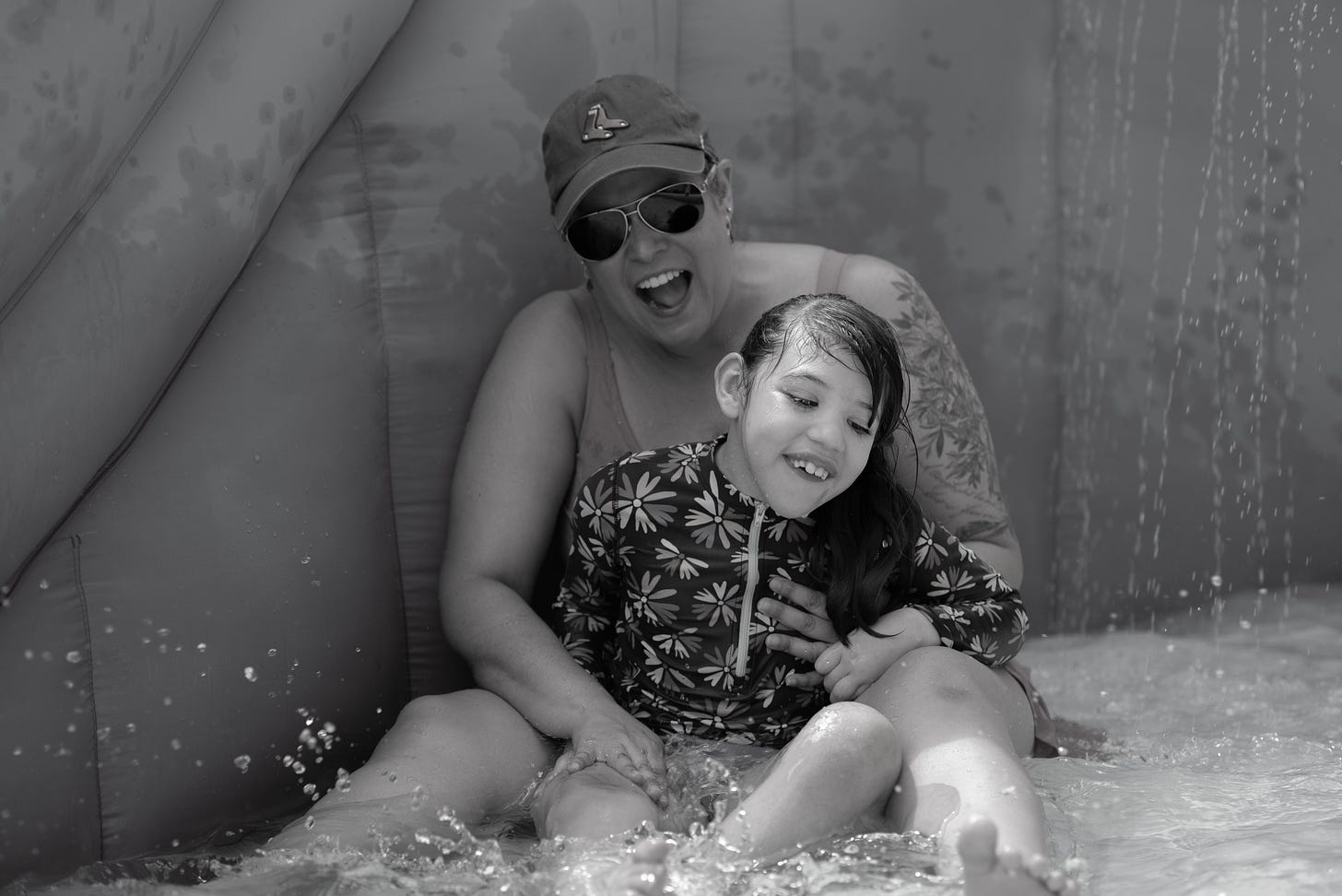
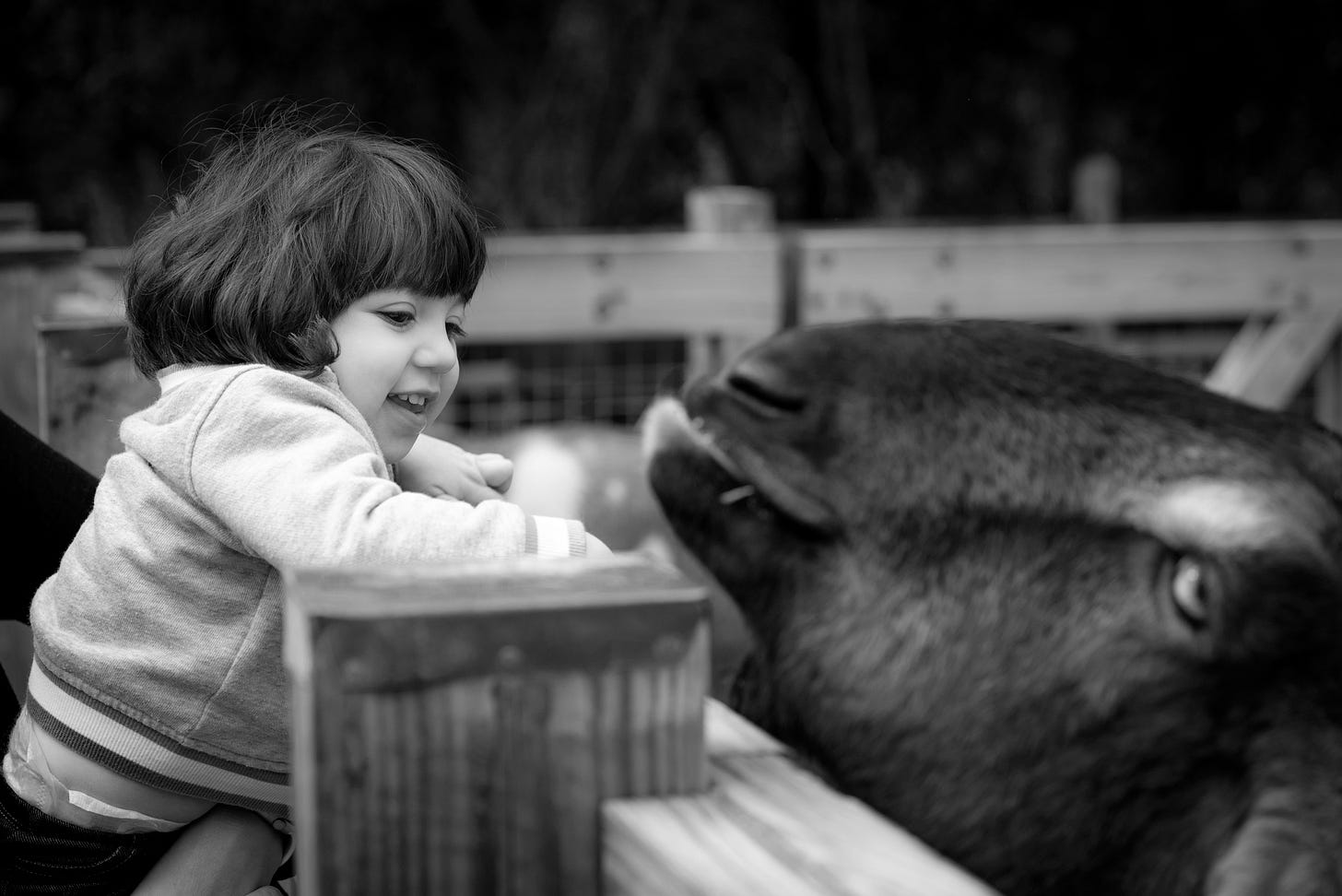

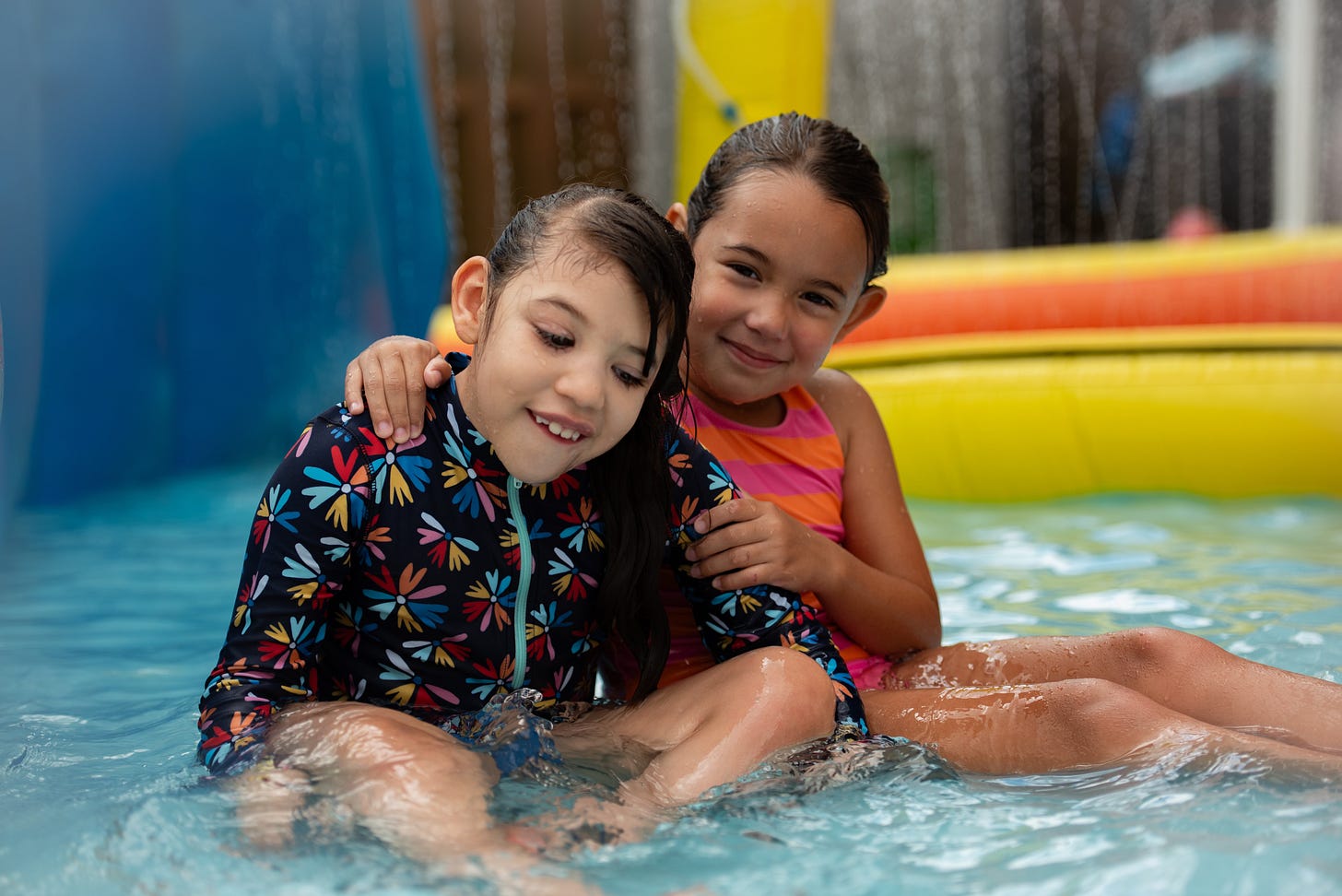
Katia thank you and your cousin for sharing this story and for the beautiful and perfect way to describe your very large familia. Ana Sofía and the pictures are beautiful. I really appreciate Tessa sharing her experience. Hopefully it underscores that the dreadful, cruel slashes in Medicaid by this hateful, awful, inhumane (and so many more descriptors) regime affects real people and real lives. This isn’t some abstract or theoretical concept. A healthy society (in all the ways that applies) truly only succeeds when we understand that we are all really connected and thus affected by the best and worst of who we decide to be.
What a beautiful story of love and resilience.